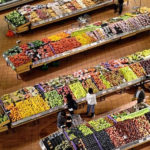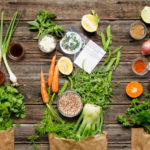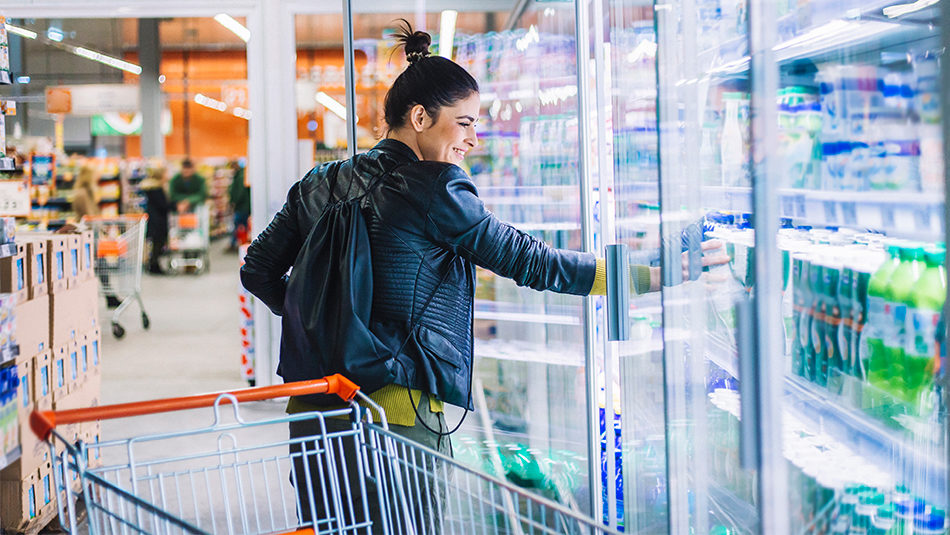
New Grocery Formats Offer Big Opportunities for CPG & Fresh Foods
In the movie There’s Something About Mary Ben Stiller picks up a hitchhiker played by Harland Williams. The hitchhiker expounds on his plan to get rich by coming out with a video called “Seven Minute Abs”, blowing the hit video “Eight Minute Abs” out of the water. Stiller responds by asking what will happen when someone comes out with a “Six Minute Abs” video.
The grocery industry, goaded in to action by Amazon, is going through a similar cycle. Millennials and Gen Z’ers have come to expect frictionless shopping experiences, where they can order exactly what they want with one or two clicks, and pick it up or have it delivered whenever they want. Next day delivery has been replaced by same day delivery, and if that isn’t fast enough you can pick up your order in store within a couple of hours. The grocery industry has responded in a myriad of ways, desperate to stay relevant and responsive to the ever–changing demands of the consumer.
Grocery Industry Changing and Expanding
Brick and mortar stores in categories like clothing and jewelry are closing down in droves or whatever is worse than droves. The retail food landscape, on the other hand, is adding square footage, trying all new models, and innovating like never before to make sure Millennials and Gen Z’ers demands are met:
- Low cost operator Lidl announced last month that they would open 25 new stores up and down the East Coast from Virginia to New York within the next 12 months. Sprouts is adding 13 stores before the end of 2019. Food Lion is remodeling 23 stores, with innovations like walk-in produce coolers.
- HEB is remodeling one of its oldest stores in Austin and expanding it to 100,000 square feet, to accommodate a beer garden and food hall with indoor and outdoor dining. Meijer is opening 3 new supercenters in Ohio that top out at 155,000 square feet a piece. One of them will be open 24 hours a day, providing the ultimate convenience for those who like to shop for groceries at 3AM. But if you don’t want to go out, they also are offering same day delivery through a partnership with Shipt.
- Going in the other direction, Publix last month opened another Greenwise market, their first in South Carolina. Greenwise is a small format, 20,000 square foot store heavy on organic products and prepared foods. In March, Hy-Vee stated that it would open 50 to 60 of its small format store, HealthMarket. Even though the stores are under 20,000 square feet, they have room for a yoga studio.
- Target announced a 42% increase in online sales in first quarter. Lower grocery prices were part of their success, and they also noted that shoppers who were opting for delivery or pick up were buying more than in-store shoppers, perhaps because they don’t have to carry all those items.
- Kroger has been capturing market share by cutting prices. Their 4th quarter margins dropped a full point, but their sales were up 2% in 2018. Home delivery or pickup is now available to 91% of their customers.
Overall, ecommerce sales only account for 2% of food and beverage sales in the US, but grew at 18.2% in 2018, making it the fastest growing ecommerce category. There is every reason to believe this growth will continue.
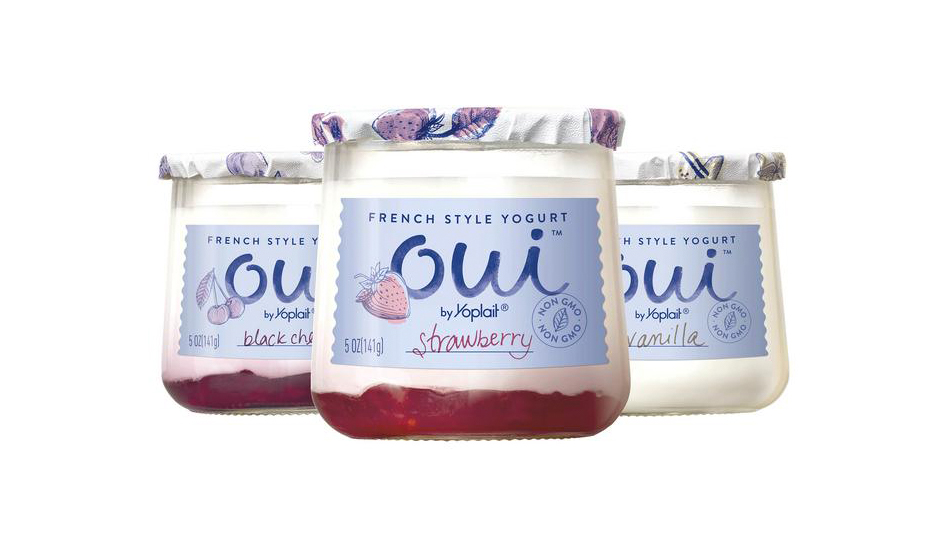 The Grocery Industry’s Impact on CPG and Food Supplier
The Grocery Industry’s Impact on CPG and Food Supplier
These relentless moves by the grocery industry and other food retailers create an opportunity for food manufacturers to offer innovations of their own to fulfill customers’ new demands and requirements. These opportunities can be found in unusual places. For example, 7-Eleven is testing a format in Dallas that offers kombucha on tap, on site fresh-baked croissants and cookies, a taqueria, cold-pressed juices and made to order coffee drinks.
Here are a few examples of the nimble work being done by food suppliers to deliver on the requirements of the new consumer:
-
-
Glass packaging
is back in vogue. Because glass is easily recycled, it is the preferred choice of environmentally aware consumers. General Mills’ Oui Yogurt is sold in glass jars, which has the added benefit of allowing the yogurt to be cultured in the container it is sold in, instead of requiring large vats. And although retailers are concerned with breakage of glass packaging, Aldi announced that it plans to use only reusable, recyclable or compostable packaging within six years. California Giant Berry Farms is testing a clamshell made of recyclable cardboard to replace the plastic ones currently in use for their strawberries. Meanwhile, Kroger is teaming up with Loop, a circular e-commerce platform, to replace disposable containers used in home delivery with washable and reusable durable containers.
-
Freeze Dried
products are not just for camping any more. Mountain House has introduced Simple Sensations freeze-dried meals to capitalize on Gen Z’ers demands for fast, convenient and nutritious meals. The meals take less than 10 minutes to cook, contain less than 280 calories and deliver 10-18 grams of protein. New freeze-drying technology retains the flavor, aroma and nutritional value of the ingredients.
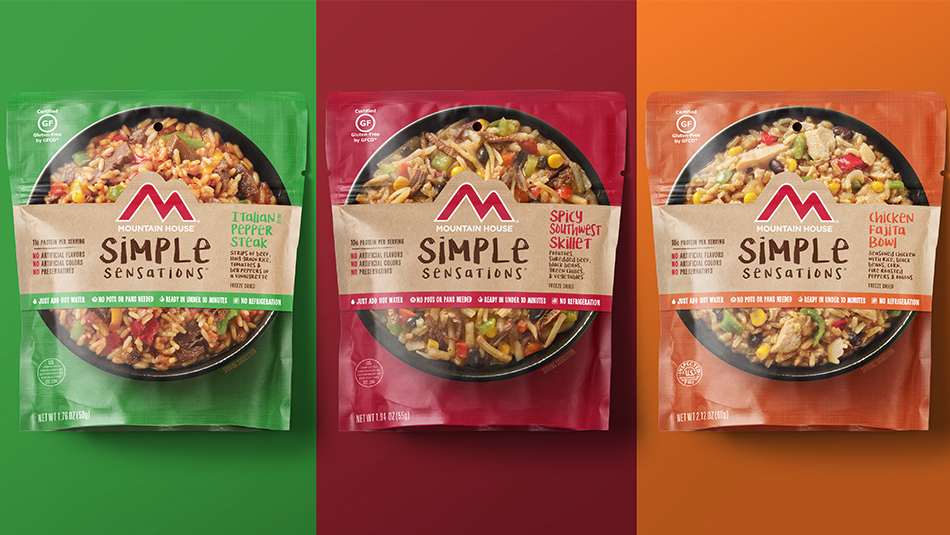
-
The rebirth of the Frozen Aisle
has not gone un-noticed at Del Monte. Frozen vegetable sales were up 4.5% in 2017 (more than double the growth of fresh departments), as Millennials and Gen Z’ers strapped for time discovered the convenience of frozen foods. So Del Monte is stepping away from its canned food heritage to launch a line of frozen and refrigerated products. The line, called Veggieful, includes items such as broccoli and cheddar bites, which come in a cauliflower crust.
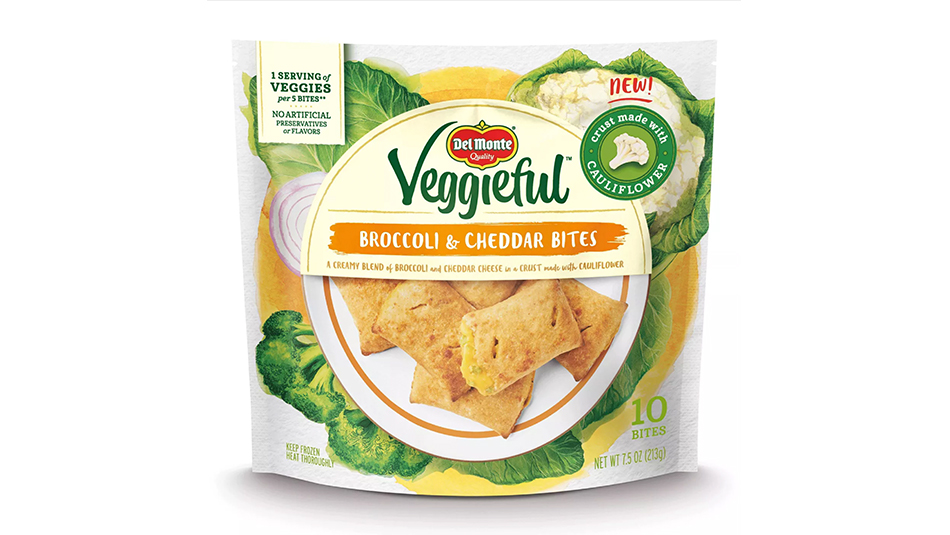
-
Tropical Fruits
and vegetables are garnering increasing space in the Produce Departments of major retailers. The Hispanic and Asian populations are growing faster than any other group, and are driving demand for these items. Avocados and mangoes are being joined on shelf by starfruit and lychees. In other Produce Department changes, Whole Foods announced another round of price cuts, and emphasized the majority of those cuts were on produce items.
-
Clean-Label products continue to expand.
Mondelez has taken note of the clean label, healthier snack trend and has taken a minority stake in Hu, which offers vegan, soy-free, dairy-free, and gluten-free chocolate and other snacks. Also in the snack arena, Soylent, the meal-replacement company, has introduced 100-calorie snack bars called Soylent Squared. Meanwhile Kind bars launched a website that shows how much sugar is in competitors bars, between 13 and 20 grams, compared to Kind bars’ 5 grams.
-
Breakfast
is attracting CPG manufacturers. Lunchables has introduced Brunchables in three varieties.
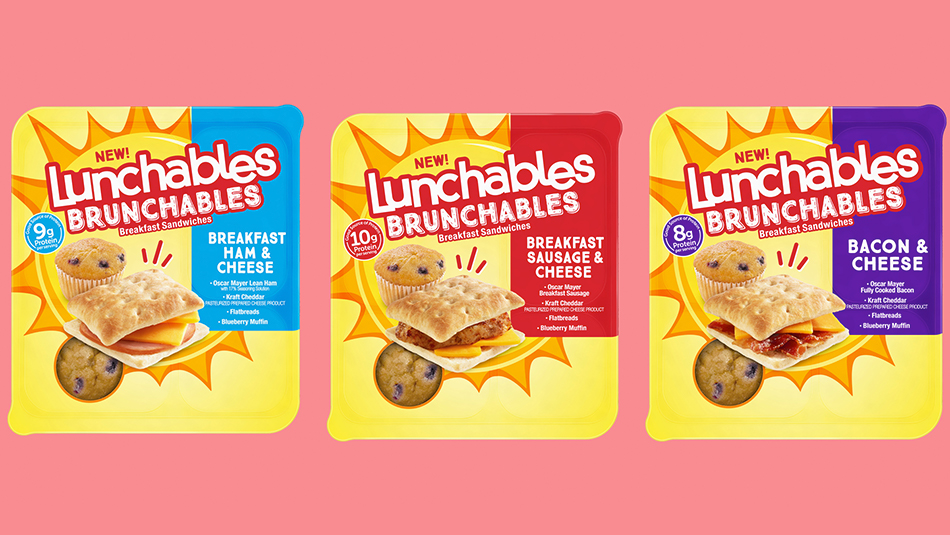
-
Television, Digital and Print Personality
Ree Drummond, aka The Pioneer Woman, has been tapped by Kraft Heinz to launch a line of dressings, BBQ and pasta sauces, capitalizing on her popularity with Food Network viewers and readers of her cookbooks.
-
Plant-Based Meat Substitutes
are hitting retail stores this year in a big way. Beyond Meat was the first to enter the supermarket space, but it is being joined by Impossible Burger, which started out in the Foodservice arena, along with newcomer Before the Butcher. In the produce aisle, Dole introduced a line of Bountiful Kit salads featuring plant-based protein. The kits come in four varieties, and each includes one or more of the following: edamame, black beans, lentils, quinoa and chickpeas. Mann Packing, the company that brought us Broccolini®, is hoping the mini-produce trend continues, and is introducing Caulilini® baby cauliflower. One cloud on the horizon might be attempts by politicians and meat industry lobbyists to stop meat substitute products from using the word meat.
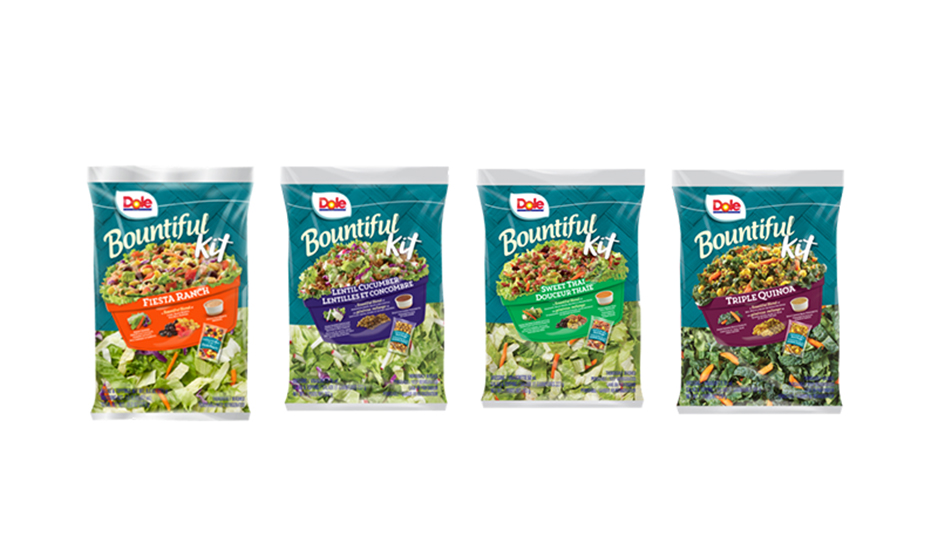
CPG and Fresh Food Suppliers are Finding New Markets
The experimentation by the grocery industry and other food retailers into all kinds of new formats – smaller, bigger, healthier, faster—offers opportunities for both CPG and fresh food suppliers to find new markets. The key is to introduce innovative products that deliver on the demands of the new consumer, demands that did not begin with the grocery business, but have surely arrived there.
In There’s Something About Mary, the scene ends with the hitchhiker telling Ben Stiller that nobody would ever believe you can get good abs from a six-minute exercise routine, seven is the absolute limit. In the business of delivering food to today’s consumer, it feels like there are no limits.
-

